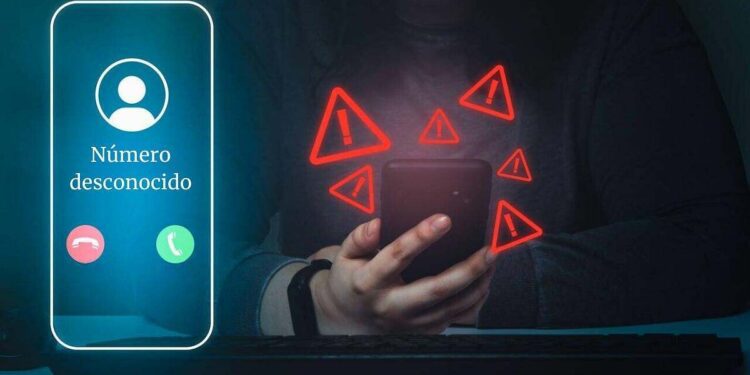Depending on who is calling us, our response may vary, since if it is our partner, a friend, or a family member we may have a specific way of doing it, but when it comes to an unknown call we usually opt for “Hello,” “Hello?” or a “Yes?”. If you are someone who usually uses the latter of these options, we inform you that you have to stop doing it, as this simple word is making it much easier for cybercriminals to commit fraud in your name.
Cybercrime is on the rise, and one of the reasons for this is that cybercriminals are increasingly ingenious in carrying out their scams and tricks with which they try to steal and obtain personal and banking information from their victims.
As we have mentioned numerous times, every day a new type of cyber attack appears that combines different frauds and techniques to try to avoid the controls and protections that more and more users adopt.
The danger behind answering “Yes” to calls from strangers
While phone calls have lost some strength, they are still one of the preferred forms of communication among users, and while there are thousands of ways to answer, one of the most common is to use a simple ‘yes’.
However, as INCIBE warns, this simple act could be the key to allowing a cybercriminal to begin committing fraud in our name. For this, cybercriminals record the calls and try to make us say “yes” in one way or another either when answering or during the conversation.
Therefore, if at first you do not answer as they want, they may remain silent until you say the desired yes. Although at other times they choose to impersonate a legitimate company and ask us questions until they finally get the answer they are looking for.
Once they have recorded our voice saying it they use it to authorize financial transactions, contracts, or even falsify our identity. This is possible because unfortunately cybercriminals have a lot of our personal information, which they have been able to obtain through stolen databases from websites where we are registered or because they have deceived us on another occasion and we have provided them with this data.
For example, with the hack of the DGT, a database of 40 million data was created with names, surnames, addresses, phone numbers, and other information. From this information, cybercriminals are able to create a profile of their victim from which they will try to impersonate their identity to sign up for a banking service in the victim’s name or even to carry out a survey in their name, among many other scams.
The truth is that there is not much to do against these scams in terms of avoiding them. The most effective thing is prevention, that is, be cautious with calls from strangers and never answer with a ‘yes’, in case you suspect the call it is best to hang up as soon as possible and block the number.


